Some might say that Marty Jonas was destined for textile arts at a young age. Her mother taught her to knit, crochet and sew, while her father taught her to hammer, saw and drill. In other words, she always kept her hands busy, and always applied her forces to creating things and manipulating textures.
Fiber serves as an extension of Marty’s voice, fueled by her passion to embellish altered textiles and manipulate fabric.
Marty spent seven years studying Embroidery City and Guilds.
In this interview, the artist talks about her extensive education, her passion for creating something original, as well as her impressive book collection.
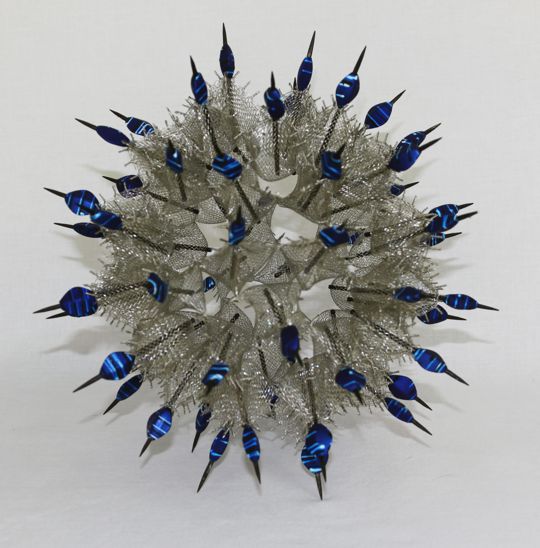
Do something better
TextileArtist.org: What initially captured your imagination about textile art?
Marty Jonas: Thread can be used in an infinite number of ways and has the ability to convey messages, alter meanings and transform the ordinary. The tactile quality of fiber, thread and wire, combined with surface design techniques, provide me with the opportunity to speak visually and expressing that which I cannot express in words. Fiber is an extension of my voice.
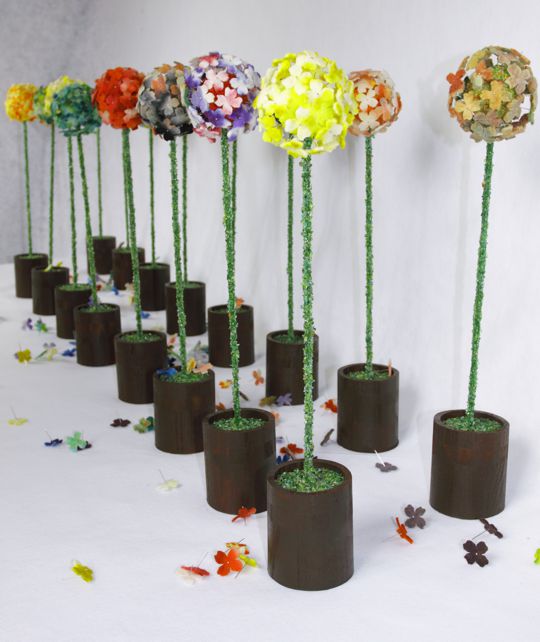
What or who were your early influences and how has your upbringing influenced your work?
I am the youngest of three girls. My mother taught us to knit, crochet and sew. My father taught us to hammer, saw, solder and drill. I cannot remember a time when I was not doing something creative with my hands. My father also taught us that when you do something, and it turns out to be easy, then it was waste of time and you should strive to do something better and harder. We were never allowed to sit and do nothing.
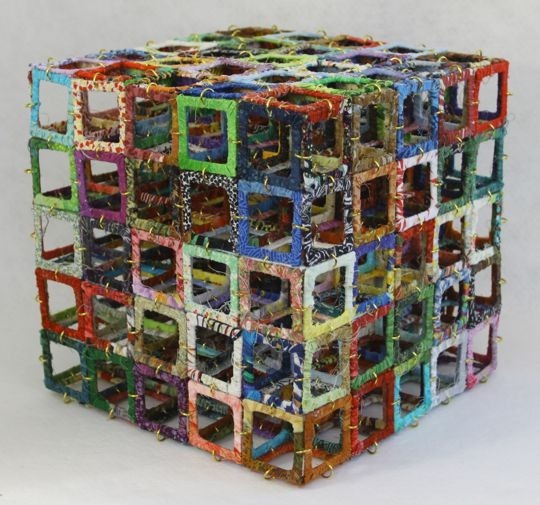
What was your route to becoming an artist?
While growing up, each Christmas, my parents brought out the cherished antique German dollhouse furniture. We were allowed to carefully play with these pieces, which were from the 1880s. There were hundreds of items including a gas working stove, icebox and early Steiff stuffed teddy bears and animals. These items were given to me and in the early 1980s, I decided to build a Victorian dollhouse for the collection. I built the dollhouse and realized that I needed to make carpets. This then started my love of textiles and I needle pointed rugs for each room.
During this time, University of California in Davis, CA was offering surface design classes and quilting was on the upswing. I was not interested in printing on fabric nor in traditional quilting. I attended a fiber exhibition at Mills College in Oakland, CA and found out about a 4-day class in embroidery nearby. The tutor, Jan Beaney from England, informed us about some upcoming classes in London and about the City and Guilds Institute of London. I immediately signed up for both. I took off for London and took my first class at a 13th century abbey. I was housed in a monk’s bedroom.
The City and Guilds Institute of London was just starting an embroidery class by correspondence and I was the first student from the United States. I completed Part 1 and Part 2 in a record seven years. I then continued my education towards an embroidery degree from Middlesex College in London.
I have continued to take classes, where and whenever I find something exciting that I would like to explore.
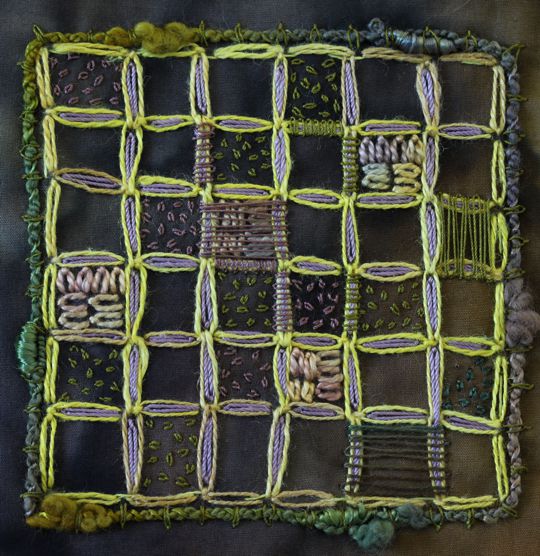
Five different techniques
What is you chosen medium and what are your techniques?
Several years ago I hired a mentor/teacher from The California College of Arts in Oakland, CA to help me to evaluate my art. One of her first suggestions was to simplify the types of work that I made. I need to put out a cohesive group work that people would recognize as mine. She told me to concentrate on one or two techniques or mediums. I had taken so many classes with City and Guilds, each from a different teacher, and learned how to embroider from most every country that my work was all over the place. I felted, appliqued, knitted, crocheted, dyed, smocked, embroidered, quilted, needle punched, machine knitted, machine embroidered, using yarn, thread, fabric, wire, roving. And I loved it all.
We reached a compromise and I said I would take it down to five different techniques but I could never settle on which five.
She also told me to spend half of my time making art and the other half promoting it.
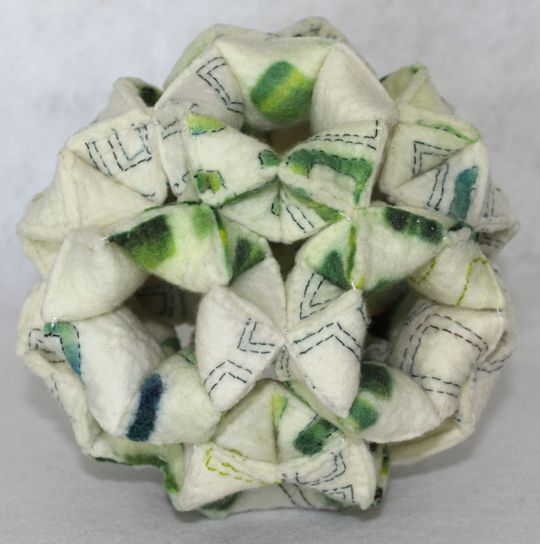
How would you describe your work and where do you think it fits within the sphere of contemporary art?
I try to develop work that is original and new. When I have taken a class and have learned a new technique, I then use that knowledge to deviate away from the teachings. I never want my work to mimic anyone else’s. I want the viewer to say, “I have never seen that before.”
I always want to surprise the viewer with new work and new concepts.
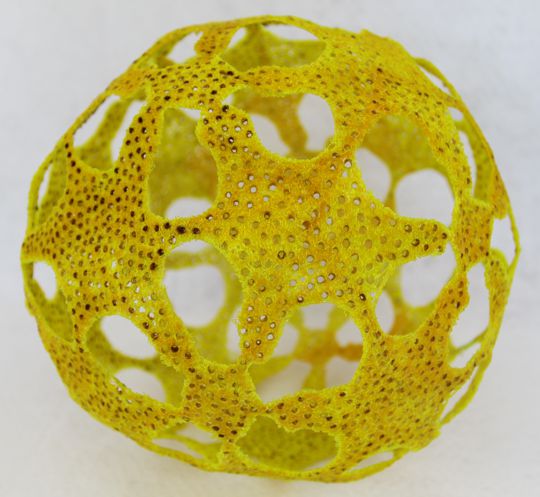
Color, line, composition, form, and texture
Tell us a bit about your process and your environment you like to work in.
My works are composed of five basic elements: color, line, composition, form, and texture. Whether my pieces are an abstraction, representational or sculptural, I use the same basic elements to achieve a cohesive balance in the composition – combining lines and color, certain forms and relations forms. Each of these elements or combination of elements builds a significant form and the form is one quality that is common to all my works.
Normally I pick a technique and materials first. Once those are chosen, I experiment with what I can do differently to combine them into something new and exciting. I do a lot of samples that go nowhere. Mathematics and geometry also play a big part in my work. I have a studio at my home and try to finish my normal household tasks in the morning and have the rest of the day free for my art. I work on my art 8-12 hours a day.
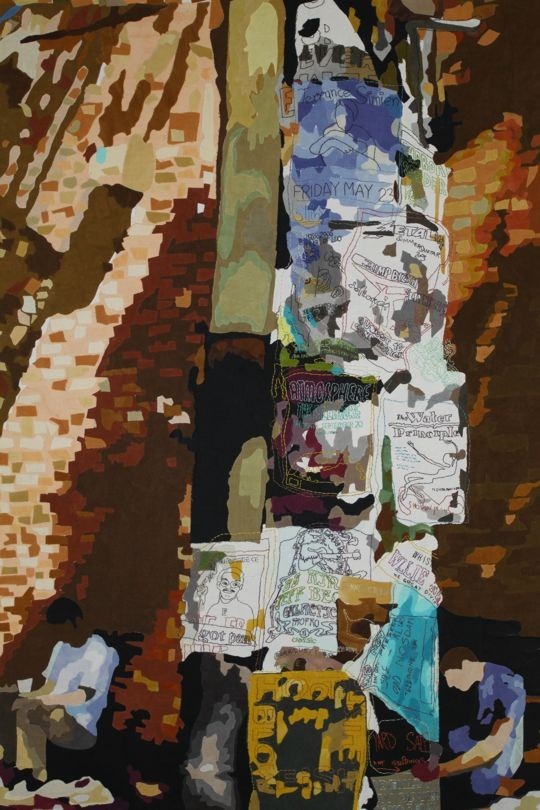
Do you use a sketchbook?
While taking my classes at City and Guilds and at Middlesex College, we were required to used sketchbooks. I still refer to them whenever I want a new idea or technique. But now I rarely use one and when looking back, regret that I have not spent more time with recording ideas. I do collect photos of work that inspire me and take photos of my work in progress.
Two years ago, I decided to record all my work using an online book company. I found photos of most of my work, including rejects, samples and some really ugly things. I have composed six books with a total of about 1,800 photos. The books also contain text about each general subject, technique and/or materials. It is my own retrospective. Now when I need to look up an older piece, I do not have to go hunt through the slides, binders, CDs, or computer.
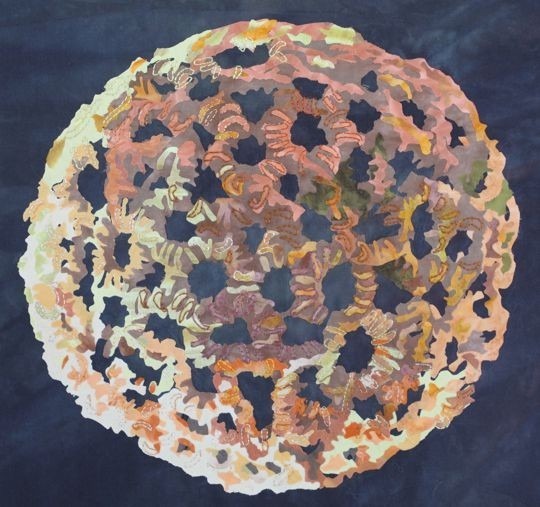
What currently inspires you and which other artists do you admire and why?
The following four English embroiderers were my main mentors:
- Julia Caprara
- Jean Draper
- Jan Beaney
- Jean Littlejohn
Some of my earlier work was inspired by Islamic architecture, Paul Klee, and my all time favorite, Mark Rothko. My 3D spheres all are derived from origami techniques.
Everything inspires me. I see a world of ideas at every turn. I have just returned from a trip to Eastern Europe and while most tourists were photographing the scenery, I looked down and photographed manhole covers.
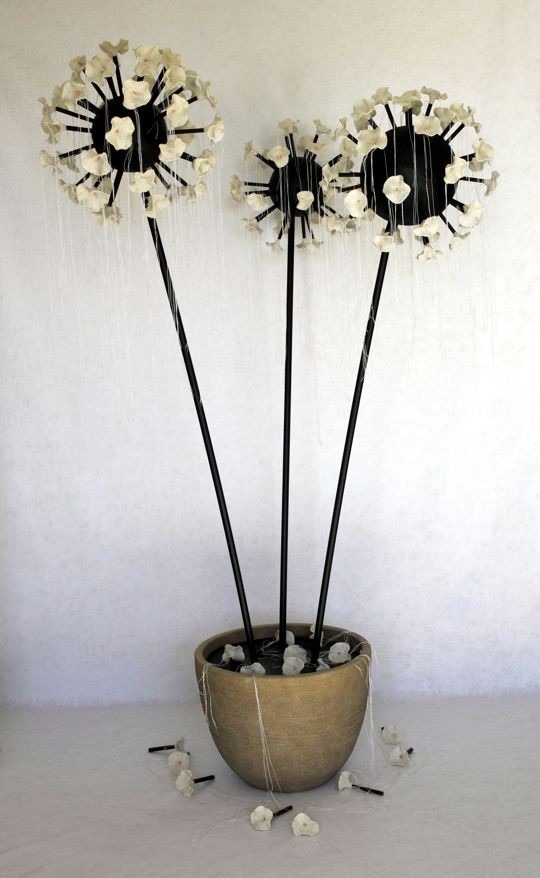
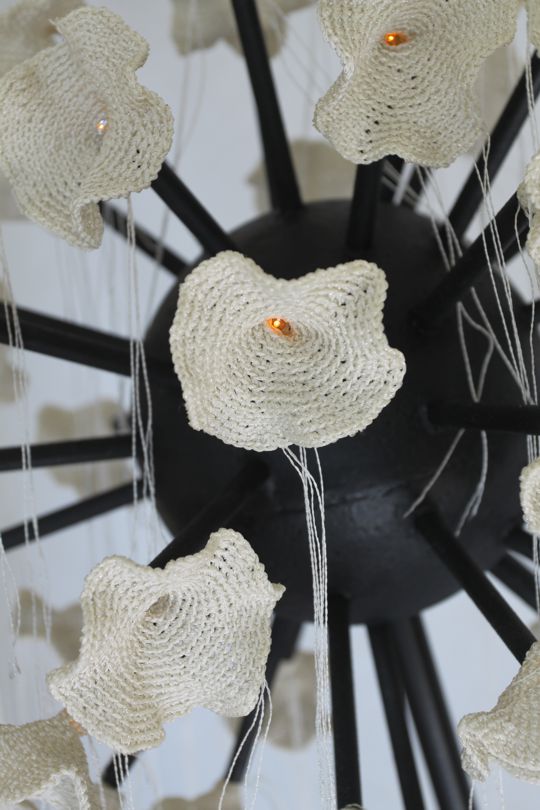
Based on the circle
Tell us about a piece of work you have fond memories of and why?
My best friend died two years ago. She was also an embroiderer and after her death, a group of fellow embroiderers put on an exhibition which included pieces of her work. I made a piece of fiber sculpture to be auctioned off in the show and with the proceeds going to charity. Heather was an avid gardener and so I planned to make a sculpture of a flower with the falling petals.
I crocheted silk thread into small flowers that had an LED light inserted as the stamen and then connected the flowers around a Styrofoam ball. Wires were led down through the stems and the three flowers made a small clump of dandelions. I also added flowers on the ground. The art piece lit up to signify her life and the fallen flowers, her death. I called it “A Garden, Now Empty.” The piece was five feet tall, very fragile and when thinking about it making a trip from the USA to England, I concluded that this was not going to be possible.
So I then made 20 smaller flowers, each signifying a year in our friendship. The flowers were made with hand dyed felt and the underlying ball and stems were covered with broken glass. These were easily shipped to England and auctioned off for charity.
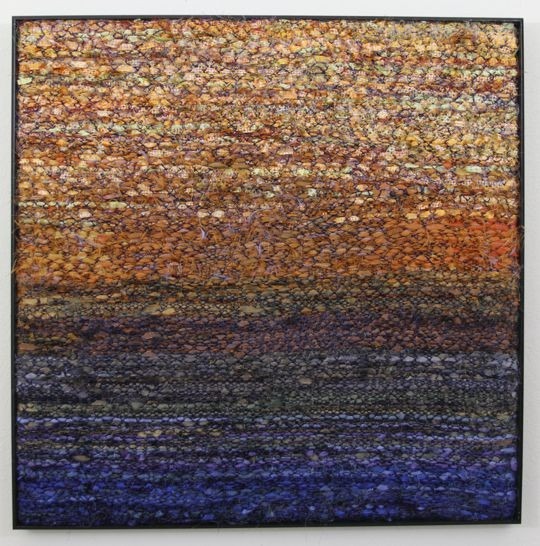
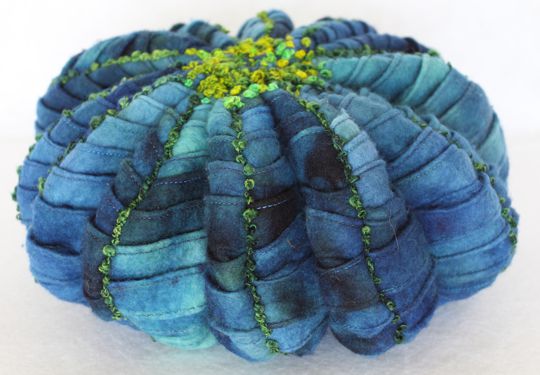
From flat to sculptural
How has your work developed since you began and how do you see it evolving in the future?
My early embroideries were all small 2D embroideries. Now I tend to make more 3D pieces but default back to flat work especially when I need my work to be mobile.
This past spring I had a one woman show with 45 pieces based on the circle. A lot of my work is either circular in form, has circles or is square in format or content.
What advice would you give to an aspiring textile artist?
Go to as many exhibitions as you can, whether online or in person and visit museums. See all types of art, and not just fiber or textile art.
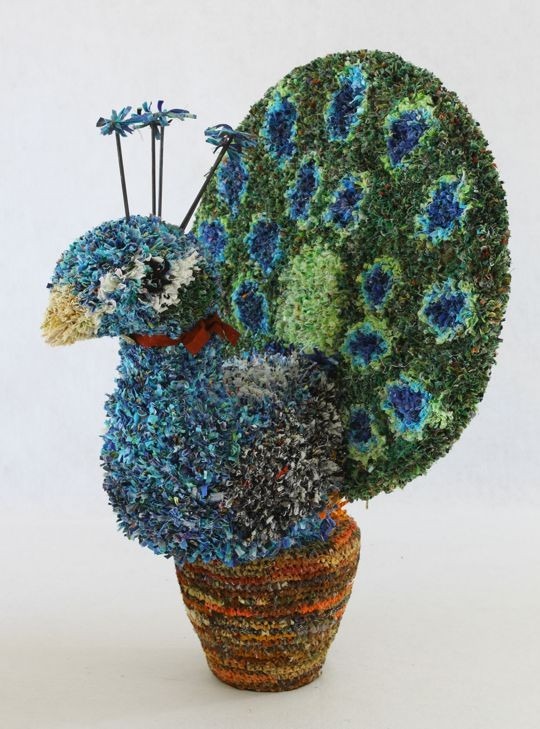
What other resources do you use?
I spend hours on the internet looking at photos, drawings, art, landscapes, etc. Pinterest is a good source for ideas.
I am an avid book collector and have eight filled bookshelves in my studio. My husband is also an artist and so I have his collection of fine art books at my disposal, too.
What piece of equipment or tool could you not live without?
Needle and thread.
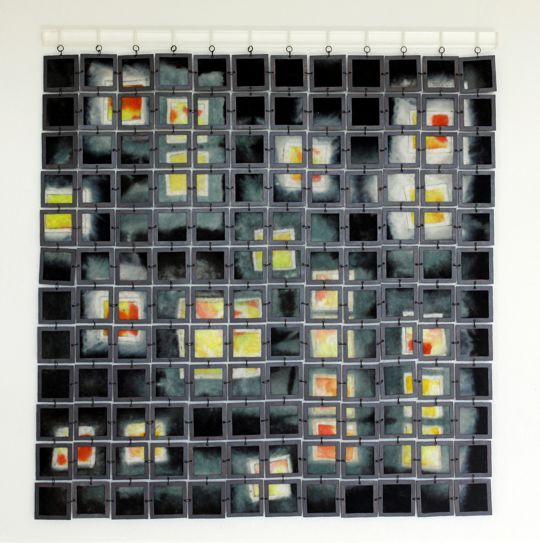
Do you give talks or run workshops or classes?
I have given talks but generally shy away from them as I am not comfortable in front of a group. I have not given any formal classes but will teach individuals at my studio.
How do you go about choosing where to show your work?
I used to submit to as many fiber shows as I could find. As my work evolved from flat to sculptural, the shipping has become a problem with some of my larger pieces costing $400 to ship one way. So I now have to really think about what I will ship, to the point that if I want to enter a show, I will plan to make a smaller piece. This has not always been possible.
Fortunately, I live in the San Francisco Bay Area and there are numerous shows to enter locally.
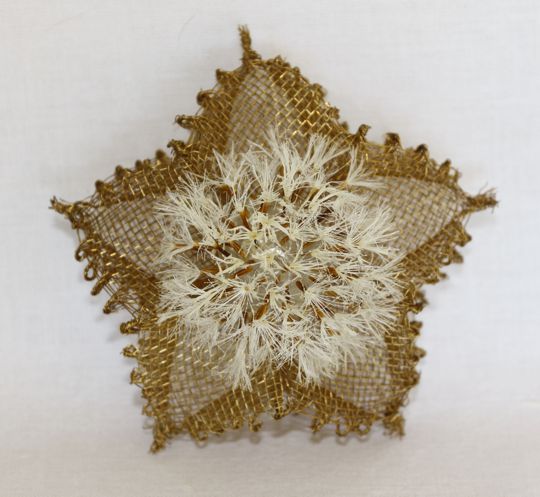
Where can readers see your work?
My website, or www.blurb.com for my books.
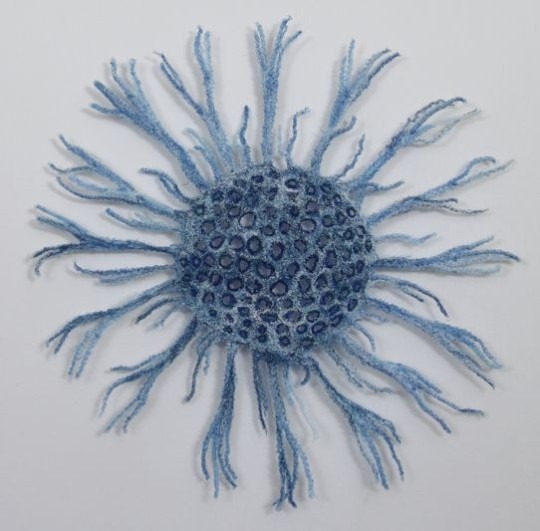
Spend more time with Marty Jonas by click here: www.martyjonas.com
Did you enjoy getting to know Marty Jonas a little better? Why not tell your friends and family about this interview by sharing it on social media?
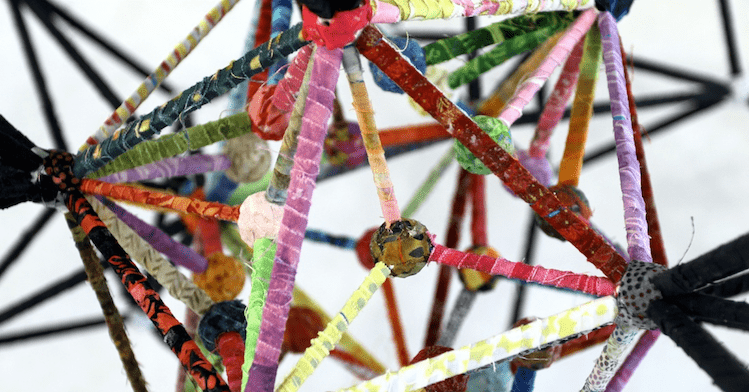
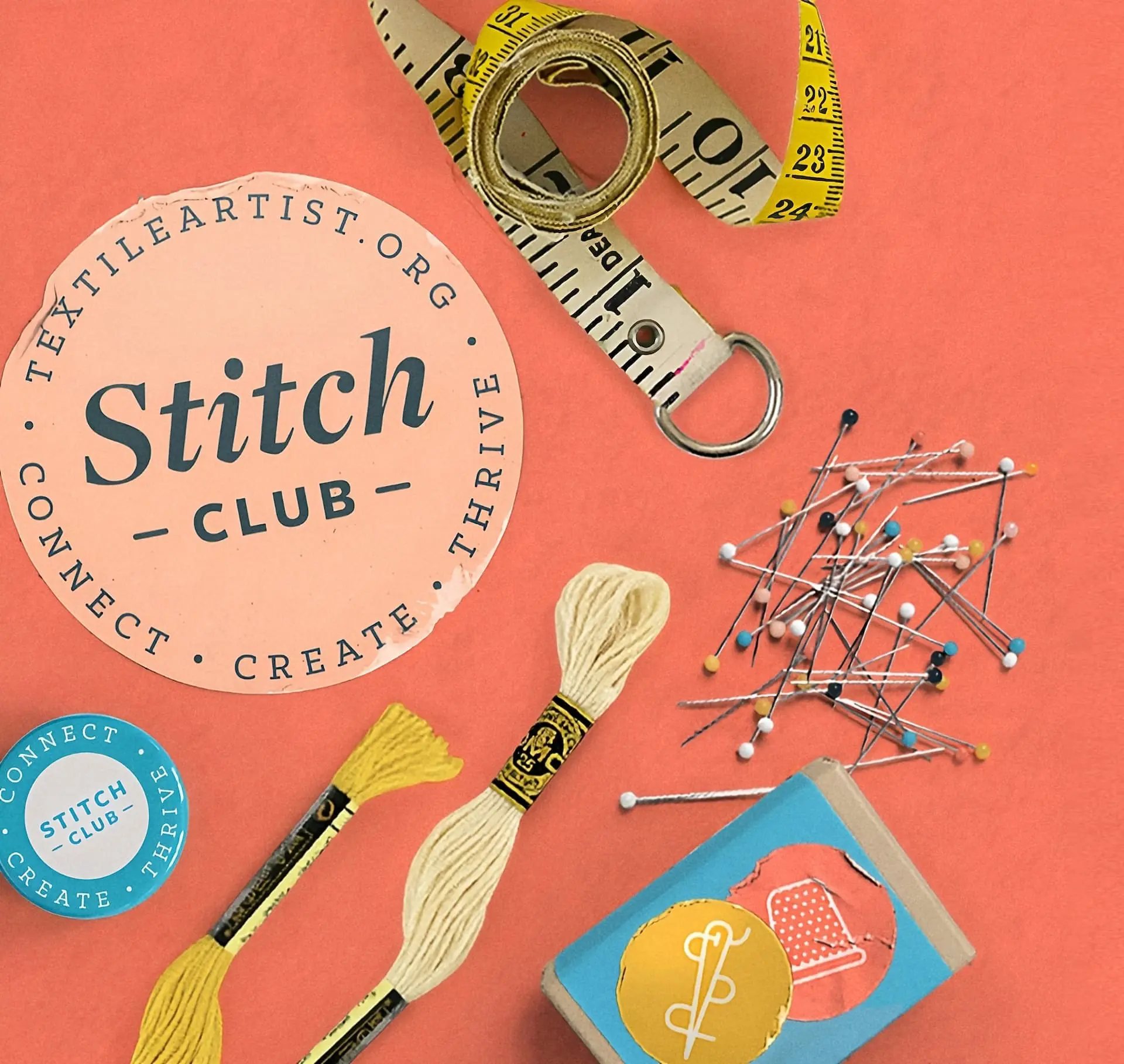
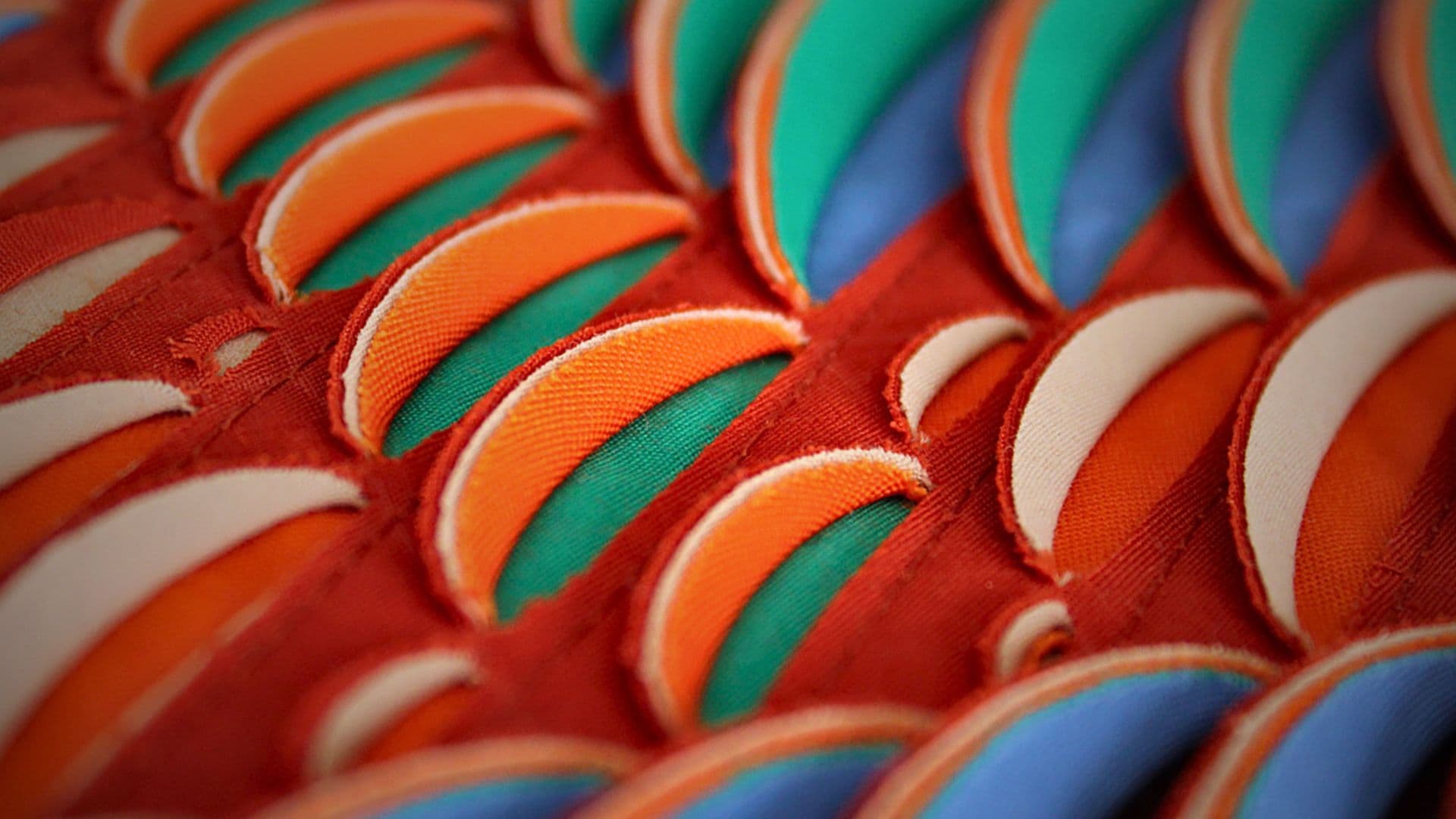
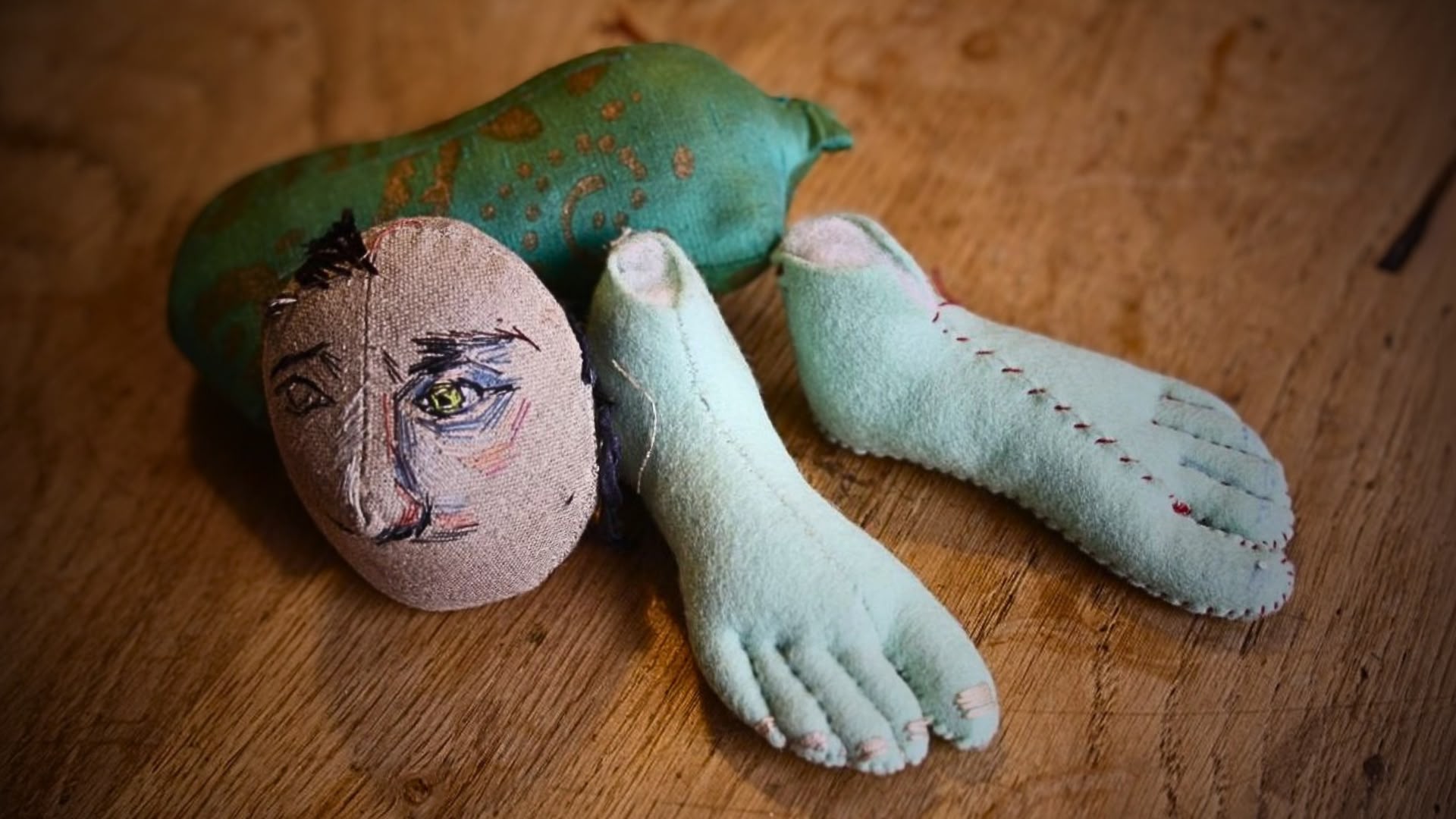
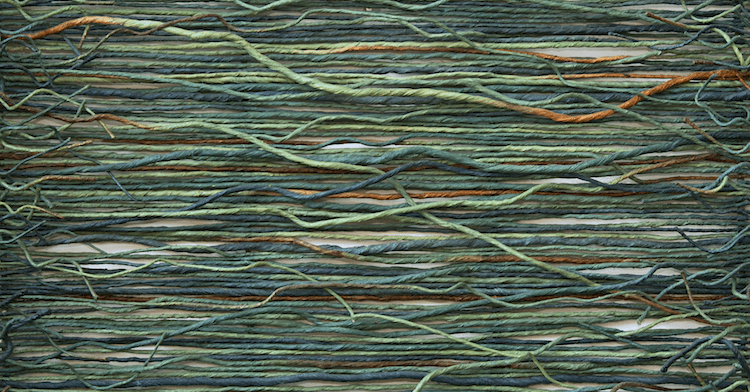

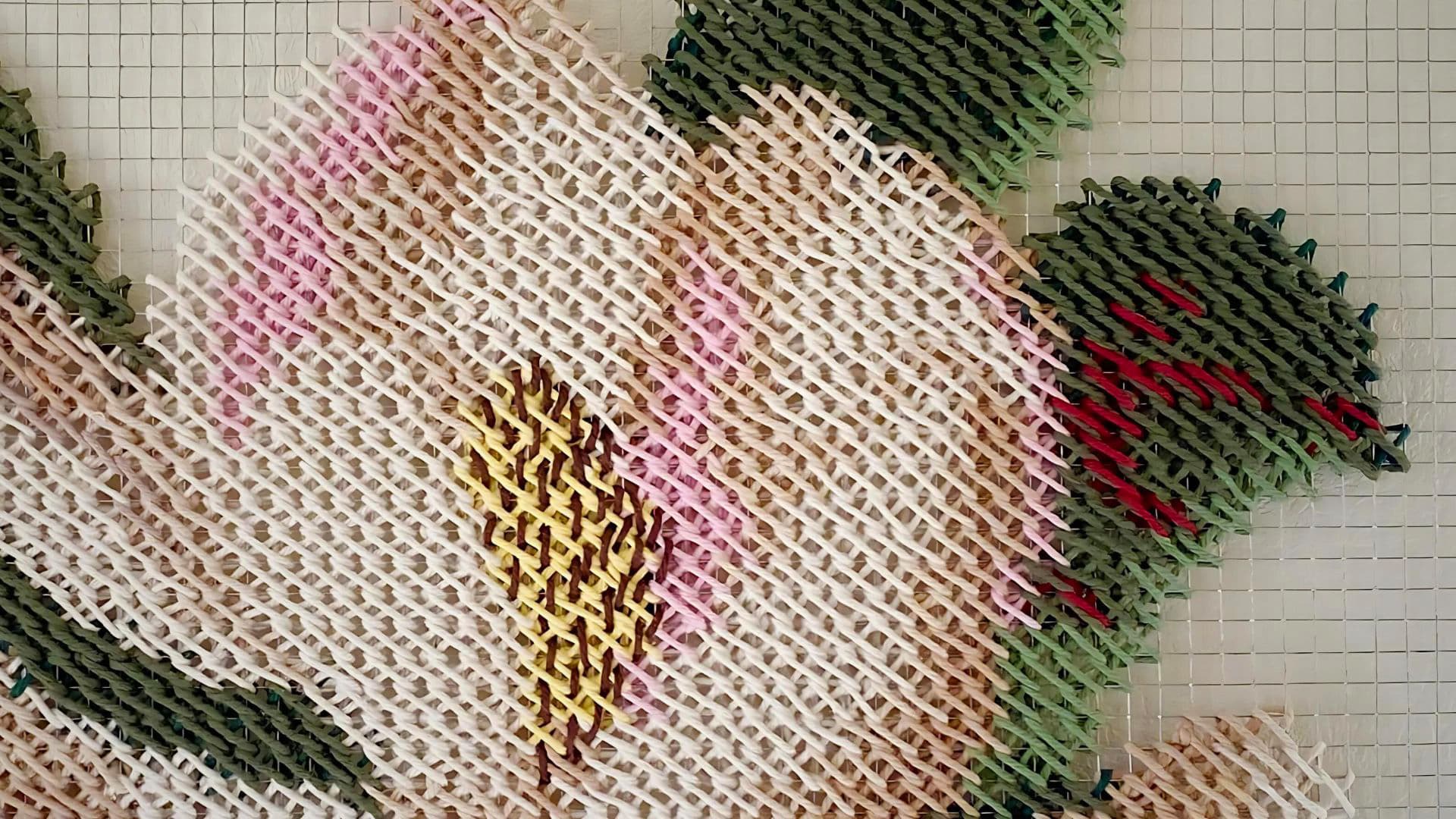
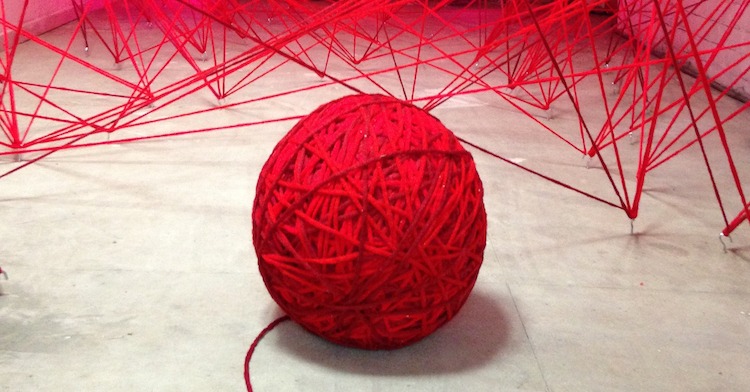
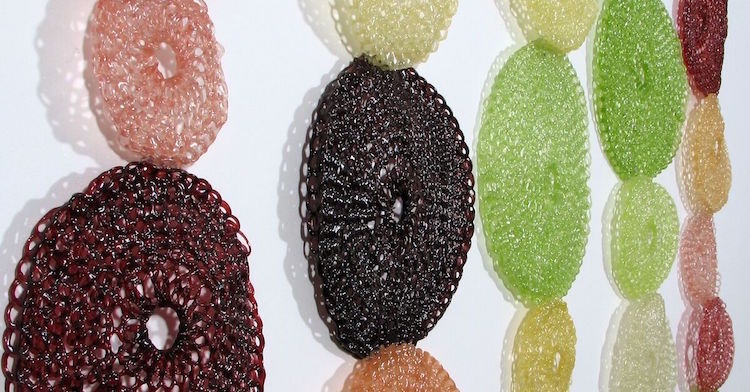
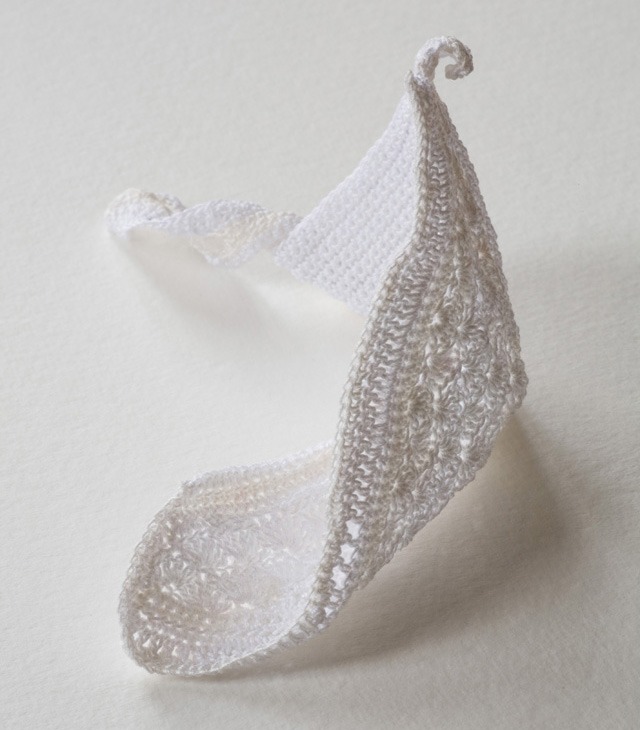

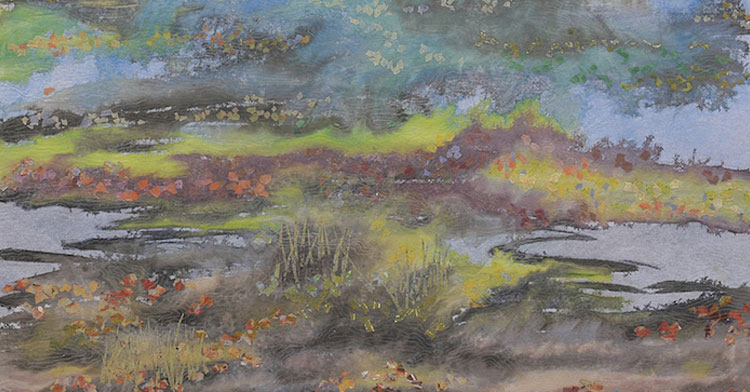
3 comments
Katy Drury Anderson
Really great interview and photos! I had not seen some of this work.
Susan Lane
Nice interview Marty. I always enjoy seeing you work and hearing your story. You inspire me!
Rachel Biel
So nice to learn more about you, Marty! I love your work!
Do you have the doll house photographed? That would be interesting to see, too. Leave a link if you do… 🙂